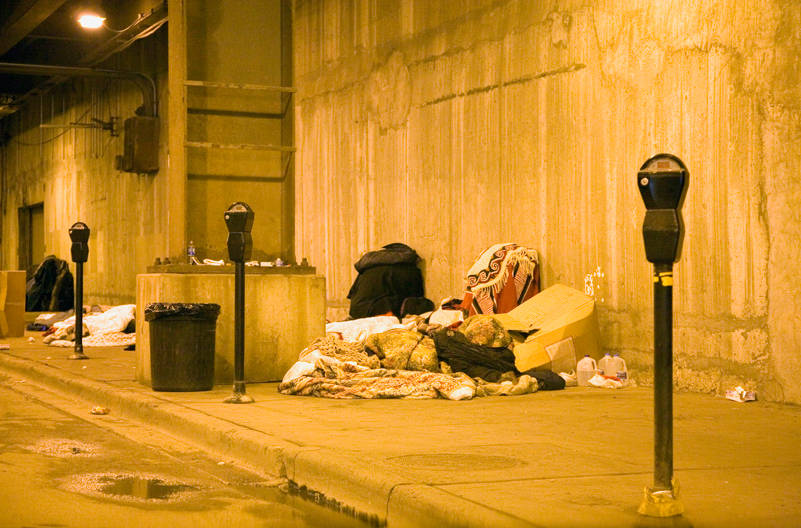By Morf Morford
Tacoma Daily Index
I’m sure you’ve seen headlines and had dozens of conversations about the most obvious topic of 2020; not COVID, the economy or even Trump, but the ultimate question, or even assumption about 2020; it had to be the worst year ever.
But was it?
What criteria would anyone use for such a designation?
Do you consider purely mathematical extremities like the number of deaths? Economic losses? Property destruction? Or perhaps the number of unemployed or homeless?
Death on a mass scale, it has been said, is a statistic. The death of a person we know, a person whose name we know, a person whose habits, preferences and quirks we know, is a tragedy beyond description.
Every individual who dies is someone’s neighbor, friend, brother, sister, father, mother, son, daughter, boss or co-worker.
One death can leave a vacuum, a lingering absence, in a neighborhood or family.
And that experience was re-lived across America and around the world too many times to count in 2020.
Was the level of deaths historically high? For most of us yes. For all of human history, perhaps not. In terms of sheer numbers, it’s not even close.
Consider 1348, the peak of the plague, also known as the Black Death, during which as many as 200 million people died around the world.
That’s more than half of the current U.S. population.
And about half of the population of Europe died over the next year or two.
For details on the Black Death, look here – https://www.history.com/news/black-death-timeline.
The Holocaust in 1944, primarily across Germany and Poland, ranked second.
And then there was 1816, when a volcano eruption in Indonesia blocked out the sun, disrupted crops around the world and resulted in the starving of millions.
But in all those cases it took years for the count to be made – and acknowledged. (Many accounts, of the numbers of the Holocaust, for example are still disputed).
We live in a hyper-vigilant, immediate but not always precise, blur of media projections and estimates.
A single death, George Floyd, for example, might resonate and re-echo around the world.
A massacre in an isolated, media-free inconsequential corner of the world might involve hundreds, even thousands of deaths with little to no recognition or publicity.
COVID deaths, spread across hundreds of cities and small towns around the world or even distant regions of the world make little direct, memorable impact.
Unless they hit home.
Disasters, from earthquakes to hurricanes to assassinations around the globe mean little unless they impact us directly.
So was 2020 the worst year ever? (For an analysis of the history of this question, take a look here – https://www.thehour.com/news/article/Was-2020-the-worst-year-ever-Historians-weigh-in-15835700.php?) For far too many people I know, it was.
2020 held nowhere as many deaths as 1348, but the unrelenting vision of death, unemployment, urban violence and overwhelming malaise was unavoidable in 2020. Thanks to our media, we were saturated in bad news from morning ‘til night.
The 24-hour news-cycle pulsed with breathless exclamations of danger and economic collapse.
And even if COVID didn’t hit us directly, the economic uncertainty did.
Jobs disappeared by the thousands – often with no warning.
The unemployment rate challenged, and then surpassed the numbers of the Great Depression of 1929.
Homelessness surged.
Ignorance of the scale of death in 1348 must have been a blessing. Death, and survival, was a local matter, often limited to family or immediate community. The dead had names.
In 2020, few deaths had names. The numbers in the headlines make us numb.
But in 2020 so many absurd and unexpected events occurred that the usual seemed impossible and what had seemed impossible suddenly seemed realistic.
Somehow, in the inverted, looking-glass world of 2020, believing in the Lizard people or alien invaders or Qanon seemed reasonable – and an appropriate justification for everything from bombing Nashville to refusing to get a vaccine or wear a face mask.
In those years BC (Before COVID), death and disasters for most of us were far away, almost abstractions that filled our screens. Most of the time – until 2020.
And many of us, like the naïve and superstitious of centuries long ago, had the luxury of assuming that what doesn’t happen to us doesn’t really matter.
When someone says that 2020 was the worst year ever, they almost always mean “It’s been the worst year ever for me and people I know.”
And in response to the question of whether 2020 was really the worst year ever, the answer, compared to virtually every other year, and considering the breadth of challenges or catastrophes from urban riots to forest fires to economic dislocations to electoral contentiousness, was that none of us could escape the sense of dread, if not betrayal that seemed to pervade the atmosphere of every corner and moment of 2020.
We’ve become accustomed to a high level of anxiety, if not suspicion, about virtually every aspect of our culture and society from food to media to authority.
When it comes to loss of confidence, in ourselves, in our political processes, in our leaders, our media and almost everything else, we are certainly emerging from “the worst year ever.”





